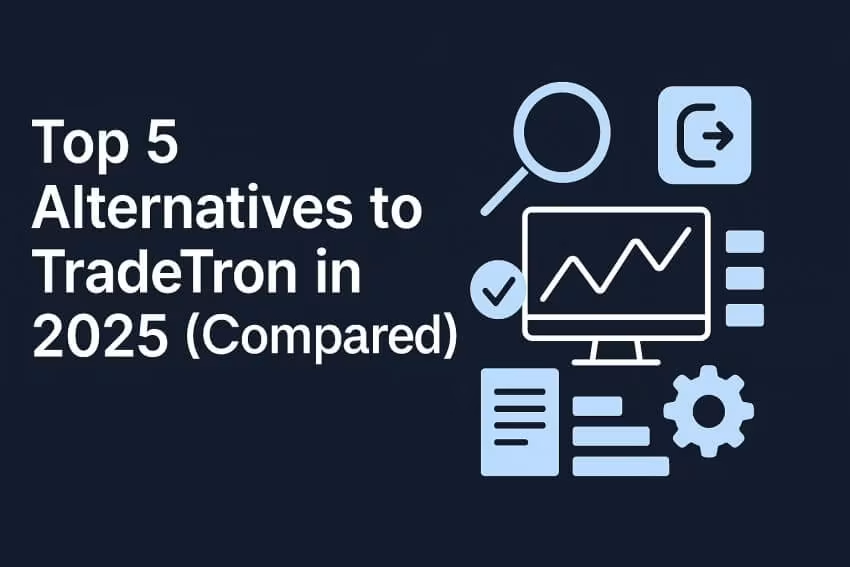Square off trading is a critical concept in the world of algorithmic trading, on platforms like uTrade Algos, especially for traders who rely on automated strategies to capitalise on market opportunities. Understanding how square off trading works and why it's essential can help traders optimise their trading performance and manage risks effectively. Let us delve further into the intricacies of square off trading and explore its significance for algo traders.
What Is Square Off Trading?
Square off trading refers to the process of closing out an open position in the market to try and realise profits or minimise losses. In the context of algorithmic trading programs, square off trading involves executing buy or sell orders to offset existing positions automatically based on predefined criteria, such as price targets, stop-loss levels, or time-based rules.
How Does Square Off Trading Work?
Automation and Efficiency
Algorithmic trading systems are programmed to monitor market conditions, analyse price movements, and execute square off trades automatically when specific conditions or criteria are met. This automation enables algo traders to capitalise on short-term price fluctuations, exploit trading opportunities, and manage risks more efficiently compared to manual trading.
Order Types and Execution
Square off trades can be executed using various order types, including market orders, limit orders, and stop orders, depending on the trading strategy and objectives. Algorithmic trading systems use sophisticated algorithms and order routing technologies to ensure timely and accurate execution of square off trades at the best available prices, minimising slippage and market impact.
Risk Management and Portfolio Optimisation
Square off trading plays a crucial role in risk management and portfolio optimisation for algo traders. By setting predefined exit points, stop-loss levels, and profit targets, traders can control and limit potential losses, protect profits, and optimise portfolio performance. Additionally, square off trading allows traders to rebalance portfolios, adjust position sizes, and reallocate capital efficiently to maximise returns and minimise drawdowns.
Why Is Square Off Trading Essential for Algo Traders?
Consistency and Discipline
Square off trading helps algo traders maintain consistency and discipline by adhering to predefined trading rules, strategies, and risk parameters. By automating the square off process, traders can eliminate emotional biases, impulsive decisions, and human errors that often plague manual trading, leading to more disciplined and consistent trading outcomes.
Scalability and Flexibility
Algorithmic trading programs, like uTrade Algos, are highly scalable and flexible, allowing traders to execute square off trades across multiple markets, asset classes, and timeframes simultaneously. This scalability enables algo traders to diversify strategies, manage larger trading volumes, and capitalise on a broader range of market opportunities, enhancing overall trading performance and profitability.
Efficient Capital Utilisation
Square off trading enables efficient capital utilisation by freeing up capital tied to open positions, allowing traders to deploy capital more effectively to new trading opportunities or investment opportunities. This efficient use of capital can lead to higher returns on investment, improved liquidity, and better overall portfolio management for algo traders.
Adaptability and Optimisation
Algorithmic trading systems can adapt and optimise square off strategies dynamically in response to changing market conditions, evolving trading patterns, and performance metrics. By continuously monitoring and analysing trading performance, algo traders can refine and improve square off strategies, adjust risk parameters, and optimise trading algorithms to adapt to new market dynamics and enhance profitability chances over time.
Key Points to Be Cautious About
- Automation Errors: Algorithmic trading software can encounter technical glitches, bugs, or errors that may disrupt the square off process, leading to unintended consequences and losses.
- Slippage and Market Impact: In fast-moving markets or low liquidity conditions, square off trades may suffer from slippage or market impact, resulting in unfavourable execution prices and increased trading costs.
- Lack of Flexibility: Rigid square off rules and criteria may limit adaptability and responsiveness to changing market dynamics, potentially missing out on new trading opportunities or failing to adjust to evolving risks.
- Insufficient Risk Management: Inadequate risk management practices, including setting inappropriate position sizes, neglecting stop-loss levels, or failing to monitor portfolio exposure, can expose algo traders to significant losses and drawdowns.
- Regulatory Compliance: Failure to comply with applicable laws, regulations, and industry standards governing square off trading activities in different jurisdictions can result in legal consequences, regulatory sanctions, and reputational damage.
In conclusion, square off trading is a fundamental aspect of algorithmic trading that plays a pivotal role in optimizing trading performance, managing risks effectively, and achieving consistent profitability for algo traders. By automating the process of closing out open positions based on predefined criteria and objectives, square off trading enables traders to maintain discipline, capitalise on market opportunities, and optimise portfolio management efficiently. As algorithmic trading in India continues to evolve and gain popularity in the financial markets, understanding and implementing effective square off strategies will be essential for algo traders to succeed in the competitive and dynamic landscape of modern trading.












